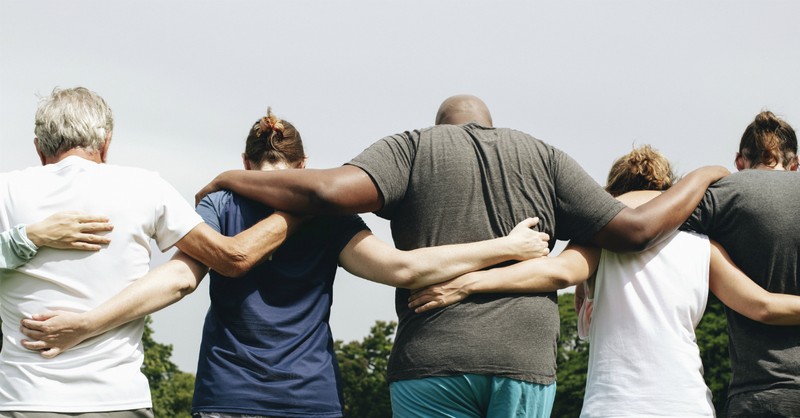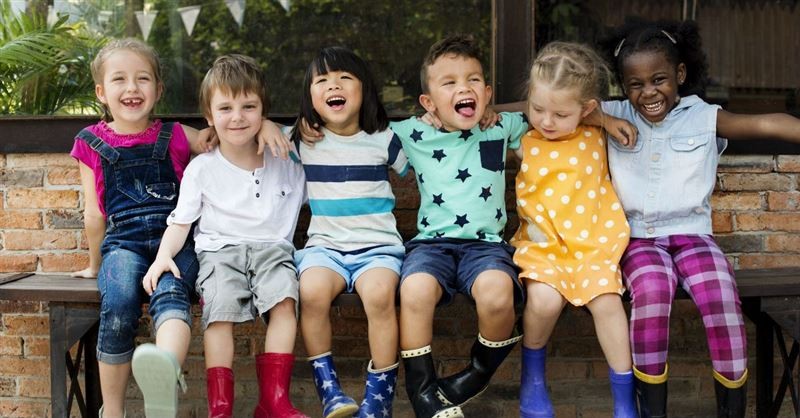
As I sat in a home Bible study with two other couples, I wrestled with the question the host asked.
He read an article that stated a certain percentage of people say they experience discrimination. He posed the question: “How do they know?” I pondered why he asked. Was this question a result of ignorance? Was he racially insensitive? Or was he racist? Whatever the answer, it made me uncomfortable. It stirred me during the short video and the discussion afterward.
To me, the answer was simple; the respondents to the survey said they experience discrimination, so they did. They shouldn’t have to prove it. As the only black person in the room, the question implied, “Your experiences are not believable.” The question didn’t appear to trouble anyone the way it did me.
Misgivings conjured up in my mind: “Why would he ask that? If a person speaks of a particular experience, why would someone doubt it?” We had joined together with these families at the dinner table. I taught their children in Sunday School. These were the people I called my brothers and sisters in Christ. But I decided the study was not the time to bring up my doubts.
Before I could initiate a discussion, another racial incident occurred that involved our teen children.
I encourage my children to address problems independently; however, the issue continued and escalated. I met with the other boy’s mother for coffee to discuss the incident. As I explained the situation, she offered little acknowledgment of imprudence or hurtful actions. I left disappointed. In the church, a few episodes followed, including degrading treatment I endured from a pastor who led a ministry in which I served. He continuously verbalized strong negative views about race, politics, and women. When I expressed my discomfort to him, he fulfilled his obligation to listen, but I wasn’t heard.
I realized the church I’d attended for seventeen years was not my home. I doubted people who were my brothers and sisters in Christ even saw me, knew me, or cared about me.
Events regarding racial injustice have brought realizations of how divided we are in the church when it comes to race. Here are 10 ways you can speak love to your black and brown brothers and sisters.
Photo Credit: © Getty Images/monkeybusinessimages

1. I’m listening.
I’m listening to your story without trying to explain, defend my position, prepare a rebuttal, or place blame. I will follow James 1:19, which says “My dear brothers and sisters, take note of this: Everyone should be quick to listen, slow to speak and slow to become angry,” I understand there is a time to be silent and a time to speak. Ecclesiastes 3 tells us there’s a time for everything. Verse 7 says there’s “a time to tear and a time to mend, a time to be silent and a time to speak.” When someone is sharing their personal story, it’s time for me to listen quietly. I choose to let you lead in conversations because I know this isn’t my area of expertise, and I have blind spots.
2. I will seek to understand.
Proverbs 11:12 says, “Whoever derides their neighbor has no sense, but the one who has understanding holds their tongue.” Like many others, I admit my unconscious bias and preconceived notions affect my point of view. I will put those notions aside and do my best to listen without prejudice. To understand your perspective, I won’t evaluate the conversation to determine whether I agree with what you are saying. Nor will I interpret the discussion based on my experiences. Instead, I will listen attentively and empathetically.
Photo Credit: © Getty Images/fizkes

3. I believe you.
I will follow Ephesians 4:2, which says, “Be completely humble and gentle; be patient, bearing with one another in love.” I will display humility when you tell me about your experiences, instead of arrogantly denying any possibility of truth. I believe you and won’t doubt you just because I haven’t had the same experience. I won’t think that you are exaggerating or too sensitive. I understand by not believing you; I’m discounting and dishonoring your experiences.
4. I acknowledge racism is not in the past but occurs today and is woven into our systems.
It isn’t something we can stop thinking about or fighting against. I admit racism looks different than I thought; however, it impacts people’s daily lives in ways it may not affect me. I recognize discriminatory practices in the criminal justice system, housing, and other areas are still a concern.
The structure in place is a form of oppression, reminiscent of Ecclesiastes 4:1, which says, “Again I looked and saw all the oppression taking place under the sun: I saw the tears of the oppressed—and they have no comforter; power was on the side of their oppressors—and they have no comforter.”
Paul addressed maltreatment and putting obstacles that hinder people. Romans 14:10-13 speaks against this, reminding us we’re equal in Christ. Paul wrote,
“You, then, why do you judge your brother or sister? Or why do you treat them with contempt? For we will all stand before God’s judgment seat. It is written: “‘As surely as I live,’ says the Lord, ‘every knee will bow before me; every tongue will acknowledge God.’ So then, each of us will give an account of ourselves to God. Therefore, let us stop passing judgment on one another. Instead, make up your mind not to put any stumbling block or obstacle in the way of a brother or sister.”
I recognize discrimination in the church hinders my black and brown brothers and sisters worship and will determine to recognize this and be an instrument of healing and peace.
Photo Credit: © Getty Images/fizkes

5. I have been complicit and complacent, whether I know it or not, because I benefit from the present system.
The current system of us vs. them conveys the message that you deserve to be treated a certain way, and I have nothing to do with your misfortunes. I know humility is key, as Philippians 2:3 tells us we are to value others higher than ourselves. I will seek to live out this verse and won’t participate in the wrongdoing of the system by allowing unfair treatment to happen without protest, and I won’t be complacent or indifferent because it doesn’t directly affect me.
I will live my life so that we all can experience the equality that Paul speaks of in 2 Corinthians 8:13-15 when he wrote, “Our desire is not that others might be relieved while you are hard pressed, but that there might be equality. At the present time your plenty will supply what they need, so that in turn their plenty will supply what you need. The goal is equality, as it is written: “The one who gathered much did not have too much, and the one who gathered little did not have too little.”
6. I repent for being complicit.
I acknowledge my sin of being part of the problem and not seeing your pain. I commit to turning away from my former way of thinking and turn toward God’s view of humanity. Now that I better understand the issue of racism, I apologize for allowing a system that hurts you and for participating in it. I know repentance is part of the ongoing need for restoration, in relationship with my black and brown brothers and sisters and of the church as a whole (Luke 17:3).
Photo Credit: © Pexels/Matheus Viana

7. I mourn with you.
As expressed in Romans 12:15, “Rejoice with those who rejoice; mourn with those who mourn.” I see and hear your lament in its many forms. I grieve with you, each injustice you’ve encountered personally, and the lives lost unjustly. I see the collective trauma and how it affects you and your family.
8. I’m learning.
I’ll continue to learn and educate myself through books, sermons, and personal relationships. Through these books, storytelling, and relationships, I will gain more insight into the lives of those who have and are living through racist experiences. I will seek out sermons by leaders who are called to lead and guide in this area. I understand committing to learning more will encourage and facilitate reconciliation.
9. I will not be silent, and I will carry this burden with you.
I will use my voice to speak about the sin of racism. I will use my privilege to address racism when I hear or see it. When I hear racial jokes or see inappropriate behavior, I won’t pretend I didn’t. I will point out the transgression.
Photo Credit: © Getty Images/Rawpixel

10. I will teach my children and those entrusted to me, how to be anti-racist.
As I learn and grow, I will share my knowledge and wisdom with others. I won’t shy away from conversations where I can display God’s love for all his creation.
We serve a perfect God who loves His broken people. God’s loving, just, and merciful nature is our example to follow. God tells us in Micah 6:8 what He expects of us: “He has shown you, O mortal, what is good. And what does the LORD require of you? To act justly and to love mercy and to walk humbly with your God.”
We didn’t get here overnight, so we won’t change overnight, this is an ongoing process. Choosing to actively and continually fight against prejudice and bias within and around us, will allow healing, restoration, and reconciliation through Christ. The commitment of repentance begins in admitting racism fully, turning away from it completely, then walking toward a path of forgiveness to reconciliation.
Photo Credit: ©GettyImages/Rawpixel
Originally published Saturday, 11 September 2021.









